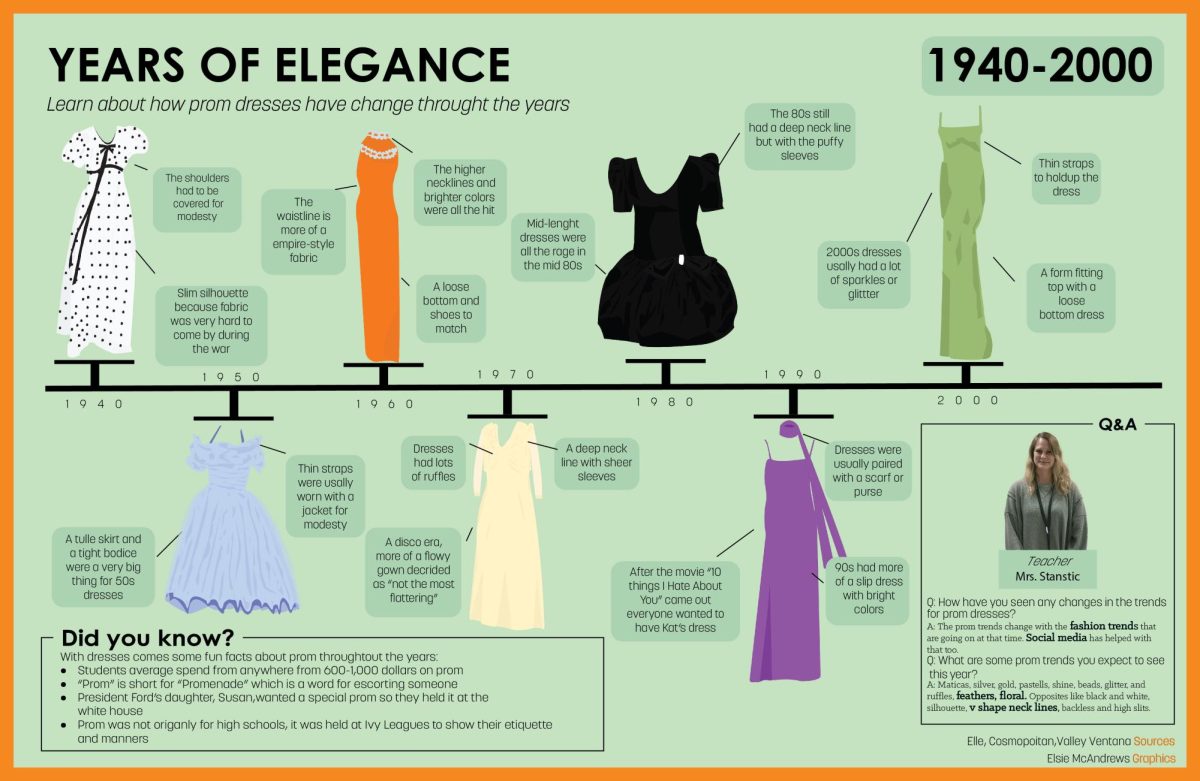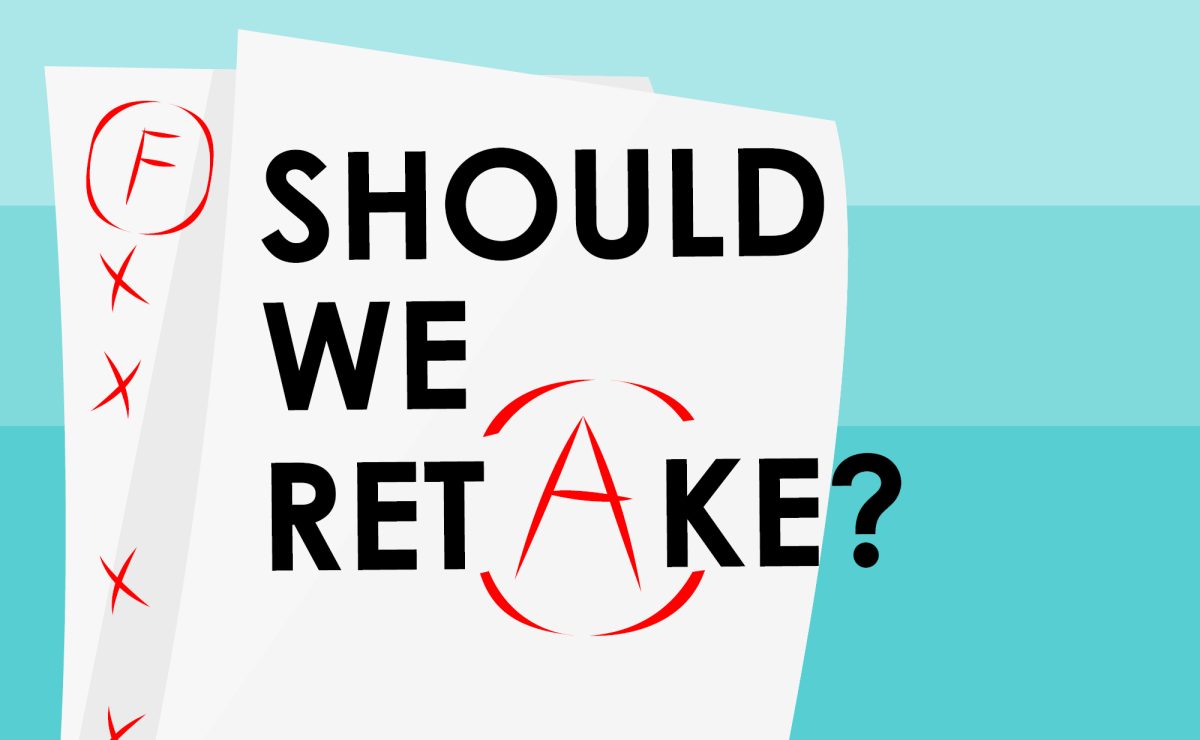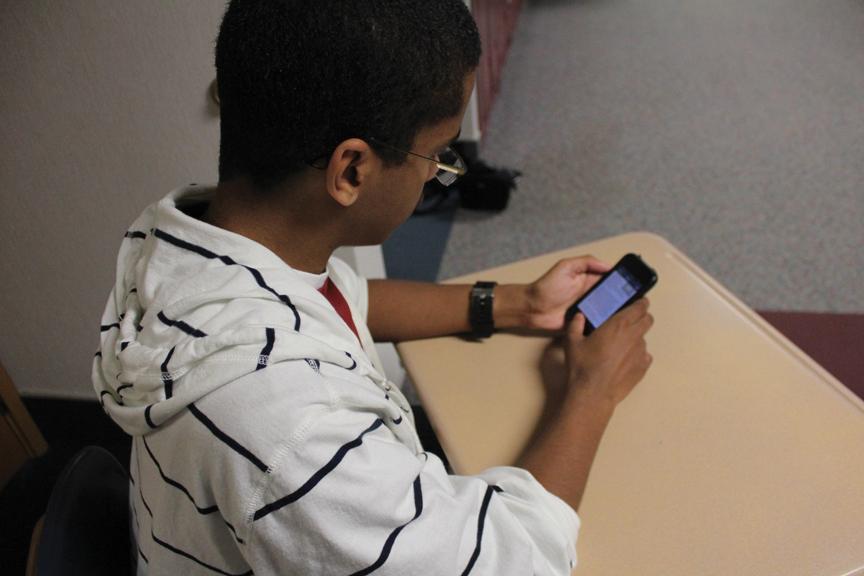Junior Brendan Roddy is who many people would call “technology-obsessed.” From his iPhone, iPod Touch, video iPod, laptop and Sony Cybershot, if it has a touch screen and/or an Apple logo on it, chances are Roddy already owns it or is thinking about buying it. In fact, while talking about his obsession with technology, Roddy was using an application called iAssociate on his iPhone.
“I would just like to say that I’m in love with technology and the social world the Internet provides,” he said. “It is one of my best friends. It keeps me in touch with everyone I know. It helps me keep track of my events, and it lets me in on what the new trends are. I could not survive without it.”

Roddy is not the only Millennial-American teen currently making the passage into adulthood with an undeniable attachment to technology. According to a report by the Pew Research Center, 95 percent of Millennials own a cell phone, and 70 percent of Millennials own a laptop computer, making the generation the most likely to own and use new technology.
However, the interesting part of this technology revolution is that it might not be a temporary craze after all. According to an April 2011 CNN.com article, Apple sales rose 83 percent since last year. In addition, Apple also announced that it sold a record 18.65 million iPhones in a quarter, up 113 percent from last year following the release of the phone on Verizon Wireless. Despite recent disappointments such as iPad 2 sales not hitting projected marks and supply-chain effects from the recent earthquake in Japan, Apple is still successful and increasing its revenue.
Business education teacher Stacie Fowler said the reason for this increase in sales is that people are always wanting the newest gadget. She said although the actual technology is not making a drastic change, there is always something a little bit faster or different about each new generation of product – such is the case with the iPad versus the iPad 2. Fowler said she believes Apple holds back some of what it can put on a certain gadget so it can release a new version and make more money off it, which contributes to its growth.
What Fowler has described has a name; it’s called “planned obsolescence,” which Apple, along with many other technology companies and car manufacturers, uses to make sure consumers keep on buying new products instead of just sticking with one product that will work continuously. Also, according to a Sept. 2011 CNN article, an app called “Phone Story” was recently banned by Apple because it describes the negatives of tech gadgets, including planned obsolescence and its effect on the environment.
Roddy said Apple’s continuous growth does not surprise him, as he said he believes technology will become increasingly important in our society. In his opinion, there is no way to avoid technological innovations, as it is such an integral part of life now.
“In the last five years, we’ve had the explosion of Facebook and the iPad, and so as more of those apps and innovations come up, we’ll have even more technological innovations,” he said. “I mean, you can move to the middle of Africa, but I don’t think that’s realistic. If you don’t like technology, you’ll just have to get used to it.”

Junior Ross Piedmonte said he agrees with Roddy in that technology will continue to grow and really has no limit. He also said that due to how much technology is a part of life today, it will play an even bigger role in the future than it does right now.
“Of course there isn’t a limit to technology. You just got to give it enough time and something new will come up,” Piedmonte said.
However, Fowler said she disagrees with both Roddy and Piedmonte and believes that there is in fact a limit to how far technology can continue to develop.
“I think we’ve come so far so quickly; there’s not too much further that we can go. I think there’s always going to be new gadgets, but they’re all going to do the same things maybe a little bit faster. I think we’ve kind of hit a plateau area,” she said.
Not only has technology and the Internet played an increasingly important role recreationally with young adults, but also a growing amount of government officials use social media to reach out to a younger audience for political purposes. According to Time.com, President Barack Obama participated in a town hall meeting at the Facebook headquarters on April 20, 2011, which was streamed live online. Furthermore, right before his election into the White House, Obama said the most maddening prospect for him as he prepared to become President was that he might lose his Blackberry privileges, which has been attached to his belt for years, according to The New York Times. Obama even argued that his Blackberry was an essential link to outside events from which he was becoming increasingly sheltered.
Roddy said it is good that the government is reaching out through the Internet, as he said he feels they want to be more connected to him and his generation. Although it might be unconventional, Roddy said that it shows the presidency is willing to adapt to changes in everyday life and actually form a connection with its citizens.
“I think the government should become more connected and use more social networks. A lot of people use it, so if the government wants to stay in touch with its citizens, they need to have access to these networks,” Roddy said. “If they want to announce something or contact the people, this is a really good way for them to do that.”
Despite the growing influence the Internet and technology has on the government, CHS still has restrictions on the amount of technology students can use. Sites such as Facebook can not be accessed from CHS computers, and using phones to text or use the Internet is still against the rules in many classrooms.

However, according to Fowler, government use of the Internet could have negative ramifications. Although she said it is great for those who can afford all the new technology and use the Internet, she said she is afraid of how it might further aggravate the division between the rich and poor in society. In fact, according to CNET.com, 30% of U.S. residents don’t have access to the Internet as of 2010.
“I am very aware of the underprivileged, and I’m just afraid they will become further and further behind because that’s going to be the sole means of communication, and they won’t have the means to get that technology,” Fowler said. “It just seems like they might not know the voting or something important is ever happening because they don’t have means to find out.”
Roddy said that Fowler’s point is correct, as not everyone has access to the Internet, and if the government starts sending updates through apps or the Internet, it would cause issues for those who are underprivileged. However, Roddy said that as long as the government is not solely giving information through technological means, he sees no problem with it.
“As long as there’s a way for people to get information in more conventional manners, then it wouldn’t be an issue, because then it would just be more of a convenient thing for those who do have iPhones, iPads and more technology,” he said.
Piedmonte said he agrees with Roddy and still believes that it is perfectly fine for the government to use social media for campaigning and other political reasons.
“I mean, it’s not a big deal. The government should be allowed to use it, because it’s just another social medium,” he said. “It’s just another way to get their word out there.”



















































![Review: “Suits” is a perfect blend of legal drama and humor [MUSE]](https://hilite.org/wp-content/uploads/2024/04/unnamed-1.png)
![Chelsea Meng on her Instagram-run bracelet shop [Biz Buzz]](https://hilite.org/wp-content/uploads/2024/04/IMG_2446-1200x838.jpg)
![Review: Quiet on Set: The Dark Side of Kids TV is the long awaited exposé of pedophilia within the children’s entertainment industry [MUSE]](https://hilite.org/wp-content/uploads/2024/04/unnamed.jpg)
![Review: “The Iron Claw” cannot get enough praise [MUSE]](https://hilite.org/wp-content/uploads/2024/04/unnamed.png)
![Review: “The Bear” sets an unbelievably high bar for future comedy shows [MUSE]](https://hilite.org/wp-content/uploads/2024/03/unnamed.png)
![Review in Print: Maripaz Villar brings a delightfully unique style to the world of WEBTOON [MUSE]](https://hilite.org/wp-content/uploads/2023/12/maripazcover-1200x960.jpg)
![Review: “The Sword of Kaigen” is a masterpiece [MUSE]](https://hilite.org/wp-content/uploads/2023/11/Screenshot-2023-11-26-201051.png)
![Review: Gateron Oil Kings, great linear switches, okay price [MUSE]](https://hilite.org/wp-content/uploads/2023/11/Screenshot-2023-11-26-200553.png)
![Review: “A Haunting in Venice” is a significant improvement from other Agatha Christie adaptations [MUSE]](https://hilite.org/wp-content/uploads/2023/11/e7ee2938a6d422669771bce6d8088521.jpg)
![Review: A Thanksgiving story from elementary school, still just as interesting [MUSE]](https://hilite.org/wp-content/uploads/2023/11/Screenshot-2023-11-26-195514-987x1200.png)
![Review: When I Fly Towards You, cute, uplifting youth drama [MUSE]](https://hilite.org/wp-content/uploads/2023/09/When-I-Fly-Towards-You-Chinese-drama.png)
![Postcards from Muse: Hawaii Travel Diary [MUSE]](https://hilite.org/wp-content/uploads/2023/09/My-project-1-1200x1200.jpg)
![Review: Ladybug & Cat Noir: The Movie, departure from original show [MUSE]](https://hilite.org/wp-content/uploads/2023/09/Ladybug__Cat_Noir_-_The_Movie_poster.jpg)
![Review in Print: Hidden Love is the cute, uplifting drama everyone needs [MUSE]](https://hilite.org/wp-content/uploads/2023/09/hiddenlovecover-e1693597208225-1030x1200.png)
![Review in Print: Heartstopper is the heartwarming queer romance we all need [MUSE]](https://hilite.org/wp-content/uploads/2023/08/museheartstoppercover-1200x654.png)























![Review: Ladybug & Cat Noir: The Movie, departure from original show [MUSE]](https://hilite.org/wp-content/uploads/2023/09/Ladybug__Cat_Noir_-_The_Movie_poster-221x300.jpg)

![Review: Next in Fashion season two survives changes, becomes a valuable pop culture artifact [MUSE]](https://hilite.org/wp-content/uploads/2023/03/Screen-Shot-2023-03-09-at-11.05.05-AM-300x214.png)
![Review: Is The Stormlight Archive worth it? [MUSE]](https://hilite.org/wp-content/uploads/2023/10/unnamed-1-184x300.png)


